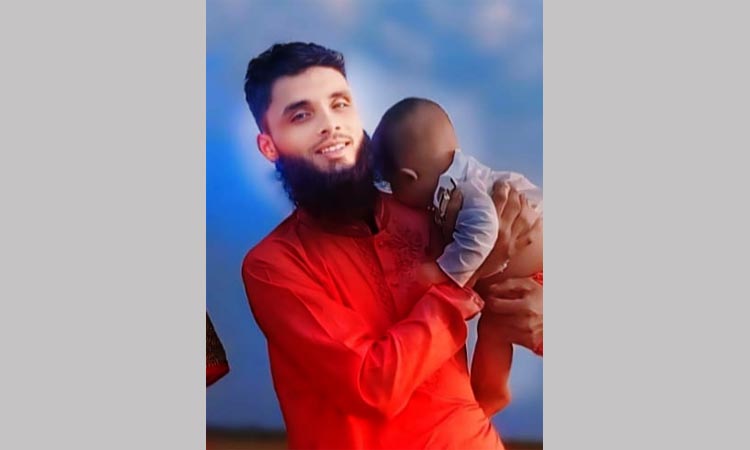News Flash
News Flash

By Syed Altefat Hossain
DHAKA, Feb 10, 2025 (BSS) – Md Jahangir Alam’s martyrdom in the July uprising left his young wife in a precarious situation as she is now eyeing a bleak future with her two children after losing the prime breadwinner of the family.
Jahangir, a 31-year-old sanitary factory worker, left his home to join the historic “March to Dhaka Programme” on August 5 during the anti-discrimination student movement aimed at overthrowing the nearly 16-year-long autocratic regime.
The movement succeeded in ousting the autocracy on the same day, but he never returned home, nor could he witness the victory of the cause he fought for.
Jahagir was shot dead in the Jatrabari area as he attempted to break through police barricades along with thousand others to join the march at Shahbag in the city.
“My husband went to perform Fajar prayers on August 5, but he did not return home until we retrieved his body from Dhaka Medical College Hospital (DMCH) next day (August 6) morning,” Jahangir’s mourning wife Ripona Khatun, a garment worker, recalled the heart-wrenching incident.
Ripona (30), who is now living at Bhanga Press area of Kajla in the city’s Jatrabari, said, “My husband used to go to the movement, but I didn’t know as I used to leave home before him for my workplace”.
Jahangir’s untimely demise caused an irreparable loss to his family as apart from his four-member family, his elderly parents- 77-year-old father Md Bahar Uddin and 72-year-old mother Mst Fatema Khatun- were also dependent on him.
“My parents-in-law are living in our village home in Sirajganj Sadar. My mother-in-law is a person with mental disability while my father-in-law is unable to work,” Ripona said.
“I’m now struggling to manage the livelihood for my three-member family, including my seven-year-old daughter, Lamiya, and four-year-old son, Rafi while I also have to support my parents-in-law,” she said in a voice gripped by uncertainty.
Lamiya is a class three student at a local village school in Sirajganj while Rafi is yet to enroll in school.
Ripona said she didn’t get any assistance from the government. She, however, got Taka 2 lakh from Jamaat-e-Islami and Taka 1 lakh from As-Sunnah Foundation that helped her meet the family needs immediately after her husband’s death.
Ripona sought help from the government to ensure a better future of her children while she demanded trial for killing her husband.
Ripona’s nephew Sheikh Farid, who was also Jahangir’s colleague, said after performing Fajr prayers on August 5, Jahangir went to Jatrabari to join the historic ‘March to Dhaka Programme’. But he didn’t return home even after Isha prayers.
“As my uncle didn’t return home even after Isha prayers, we became anxious. Thus, I along with my uncle and a friend started searching for him in desperation. We saw many bodies across the streets and in nearby hospitals, but didn’t find my uncle,” Farid said in a heavy voice.
She said when they returned home after conducting an abortive search for Jahangir, one of his friends suggested contacting Dhaka Medical College Hospital, saying there was a pile of corpses in the morgue.
“We, however, went to DMCH morgue the next morning (August 6) and after a hectic search we found my uncle’s body lying on a bench in the morgue,” Farid recounted the heartbreaking moment.
He said according to medical documents they received, Jahangir was taken to the hospital as ‘spot dead’ around 12.30pm on August 5.
Later, on August 6, Jahangir’s body was taken to his ancestral home in Sirajganj Sadar, where he was laid to his eternal rest.
Farid said Jahangir was well-loved by his colleagues and family. Known for his friendly demeanor, he often voiced his frustrations with the government’s treatment of students, who were staging demonstrations on the streets demanding quota reform in government jobs.
Farid recalled that on the way of returning home from the movement in the evening on August 4, he saw Jahangir was going to the movement. “He smiled at me when we crossed paths that evening,” Farid recounted.